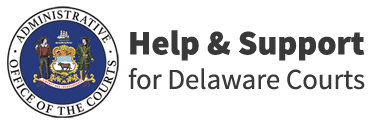Sentencing in the Court of Common Pleas
Sentencing
If the defendant enters a plea of guilty or is found guilty, the judicial officer determines the penalty or sentence to be imposed. The judicial officer may decide to immediately sentence the defendant, or may schedule the sentencing for another day after ordering a Presentence Report.
At sentencing, the prosecutor may make a recommendation to the Court about the sentence. The defendant's attorney may make a recommendation, and the defendant may make a statement on his/her behalf. The judicial officer decides the sentence and completes a sentencing order.
In determining the sentence, the Court considers many factors, such as community protection, rehabilitation and the appropriate punishment for the crime. The judicial officer imposes a sentence that he/she determines is appropriate to the defendant and to the circumstances.
The sentence must be within minimum or maximum limits set by statute. All misdemeanor offenses are also punishable by fines, court costs, community service and/or probation. If the offense resulted in injury to another person or damage to another person's property, the defendant may be required to make restitution. Restitution is the amount of money the defendant must pay to the victim of the defendant's crime to cover costs for treatment of an injury, or to repair or replace property damaged by the defendant.
As part of the sentence, the judicial officer may place the defendant on probation and order the defendant to complete a number of hours of community service by a certain date. The defendant will be given instructions as to where to report to make arrangements to complete the community service.
What is a Presentence Report?
A Presentence Report is a detailed report for the judicial officer, which includes such information as the individual's family background, employment history, educational background and criminal history. The judicial officer reviews the Presentence Report prepared by Court staff and uses the information, along with appropriate sentencing guidelines, to arrive at an appropriate penalty. These reports are ordered for all of the more serious offenses, especially where the possibility exists that the defendant may be incarcerated.
Payments of fines and costs
Payments of fines are due at the time of sentencing, unless the defendant makes other arrangements with the Fines and Costs Department of the Court. If the defendant is unable to pay the fine at the time of sentencing and makes arrangements to pay in installments, he/she will be required to sign a payment plan to pay the fine over a certain period of time.
If the Defendant is not employed, the Court may order the fines and costs to be discharged through the Work Referral Program, where the defendant works for the State at an hourly rate until he/she has worked off the amount of fines and costs. The defendant may not use work referral to pay certain assessments, e.g., Victims Compensation Fund payments or restitution. If the defendant does not pay the amount outlined in the payment plan, the Court will issue a warrant or "capias" for the defendant's arrest.
The Court accepts VISA, MasterCard and Discover for payment of fines.
Probation
The Court may place a defendant on probation as part of the sentence for a specific period of time. If a defendant is placed on probation, the Court may suspend all or part of a jail sentence imposed. If a defendant complies with the conditions of probation, he/she will not have to serve the suspended jail sentence. As part of the probation, the Court may order a defendant to successfully complete counseling, treatment programs or educational classes.
Depending on the level of probation imposed, probation may be either supervised or unsupervised. If the probation is supervised, the defendant must meet regularly with a probation officer and pay the required monthly fee. If a defendant fails to comply with the terms and conditions of probation, the probation officer assigned to the case will file a violation of probation report asking the Court to find that the defendant has violated the probation. After a hearing, if the Court determines that the defendant has violated probation, it may reimpose the suspended jail sentence or may change the terms of probation to include anything the Court could have ordered at the original sentencing.

